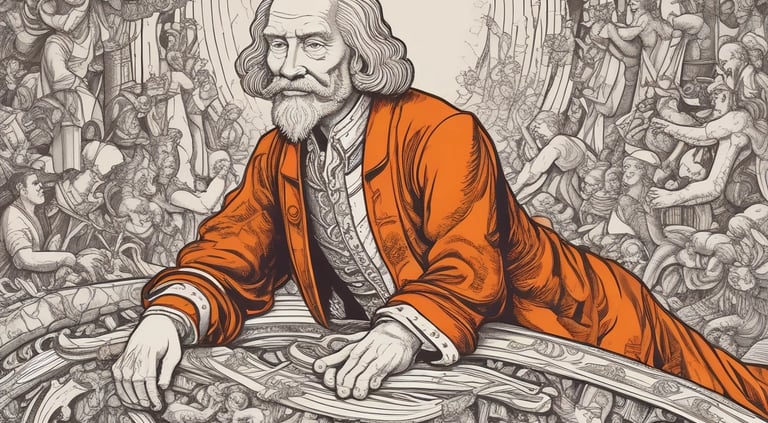UPSC PSIR Optional: Hobbesian notion of Political Obligation. (10M – 2017)
👋 Ever wondered why we obey the state? Why don’t people just live however they want? Why follow rules at all?
PSIR
8/3/20252 min read


1️⃣ Who Was Thomas Hobbes?
Thomas Hobbes, a brilliant English philosopher, is most famous for his book "Leviathan" (1651) — a powerful and sometimes terrifying vision of politics. According to Hobbes:
⚔️ "Without a strong government, life would be solitary, poor, nasty, brutish, and short."
He imagined a world without laws — a "state of nature" where everyone fought to survive in a war of "every man against every man."
2️⃣ The Social Contract: From Chaos to Civilisation
To escape this chaos, Hobbes believed people rationally came together and formed a Social Contract 🤝.
Here’s how it worked:
🧠 Humans, driven by fear and self-preservation, agreed to give up some freedoms...
👑 ...and in return, they created a Sovereign — an all-powerful authority to maintain law and order.
This Sovereign (could be a king, an assembly, or even a government) would make and enforce laws, and the people had a duty — or what Hobbes called Political Obligation — to obey them.
3️⃣ So, What Is Political Obligation? 🤔
At its core, Political Obligation means the moral responsibility to obey the laws of the state.
But for Hobbes, this obligation wasn’t about religion or morality in the divine sense. It came from the consent of the people themselves — who agreed to follow the Sovereign for their own protection and peace of mind 🕊️.
4️⃣ The Triple Foundation of Hobbesian Obligation 🧱
Hobbes believed this obedience was grounded in three types of obligation:
Moral Obligation ✝️:
Citizens obey because they agreed to the contract and gave their consent.Physical Obligation ⚖️:
The Sovereign has the power to punish those who disobey. There are consequences. Fear is a motivator.Rational Obligation 🧠:
People follow laws because it's in their self-interest — it’s safer and more peaceful than anarchy.
This wasn’t just rule by fear — Hobbes emphasized that education and persuasion were better than punishment. He even rejected Plato’s myth-based education, urging for rational understanding of why society needs order.
5️⃣ Not Everyone Agrees: Criticism of Hobbes’ Theory ⚠️
While Hobbes was revolutionary, his ideas didn’t go unchallenged:
😟 Too pessimistic: Many argue Hobbes had a very dark view of human nature — assuming we're all selfish and violent without control.
🛑 Too much power: Critics fear that giving the Sovereign absolute authority could lead to tyranny and abuse.
🤷 Questionable consent: Can consent truly be "free" if people are acting under fear and coercion?
6️⃣ Beyond the Critique: Hobbes’ Legacy 💡
Despite the critiques, a nuanced reading of Hobbes reveals something deeper:
He wasn’t a fan of blind despotism.
He held the Sovereign accountable — not to the people, but to God.
If the Sovereign failed to protect the people’s safety, Hobbes allowed the idea of a new contract — a right to rebellion in extreme cases.
👉 Hobbes’ work laid the foundation for modern constitutional democracies. His insistence on law, order, consent, and rational governance still shapes how we think about why governments exist and why we follow them.
🎯 Conclusion: Why Hobbes Still Matters
Hobbes taught us that political obligation isn’t about loyalty to a king or fear of God — it’s about a rational choice to trade a bit of freedom for a whole lot of peace.
And in a world still struggling with questions of authority, obedience, and governance, his insights remain powerful reminders of the delicate balance between power and liberty ⚖️.